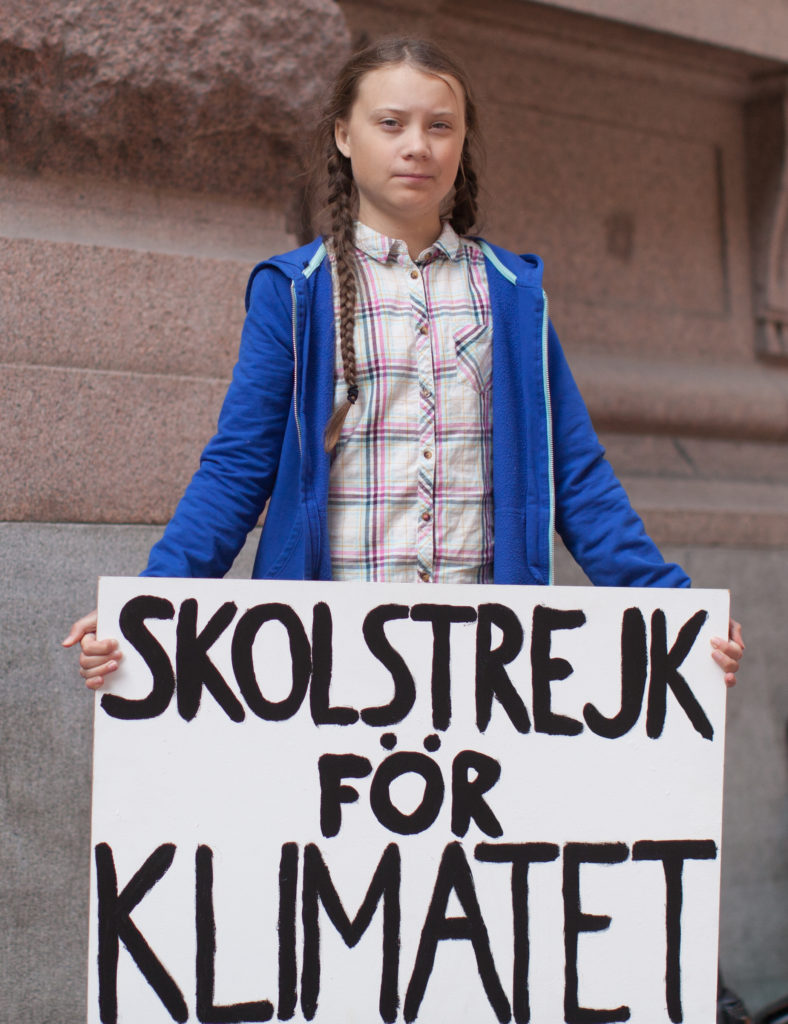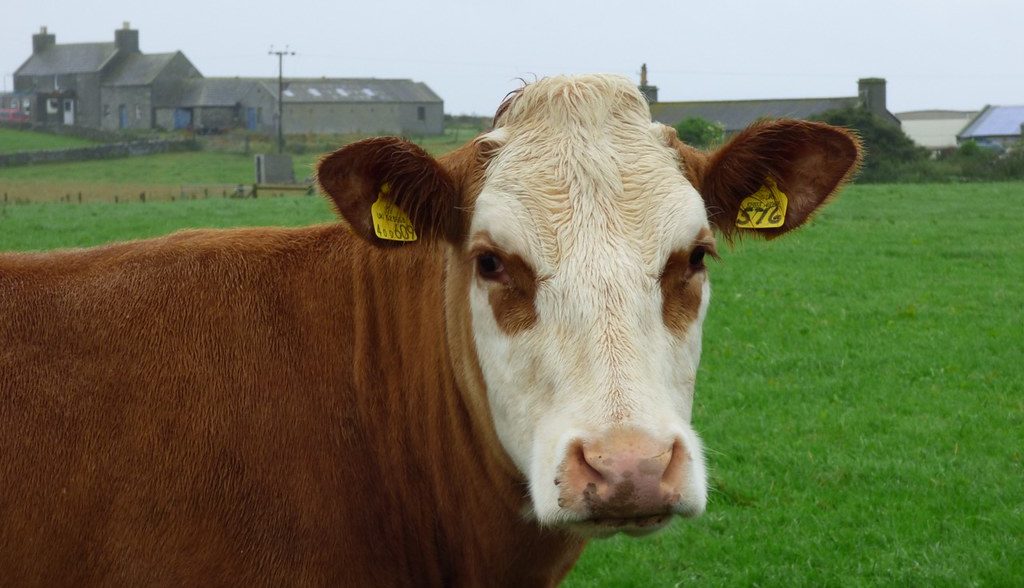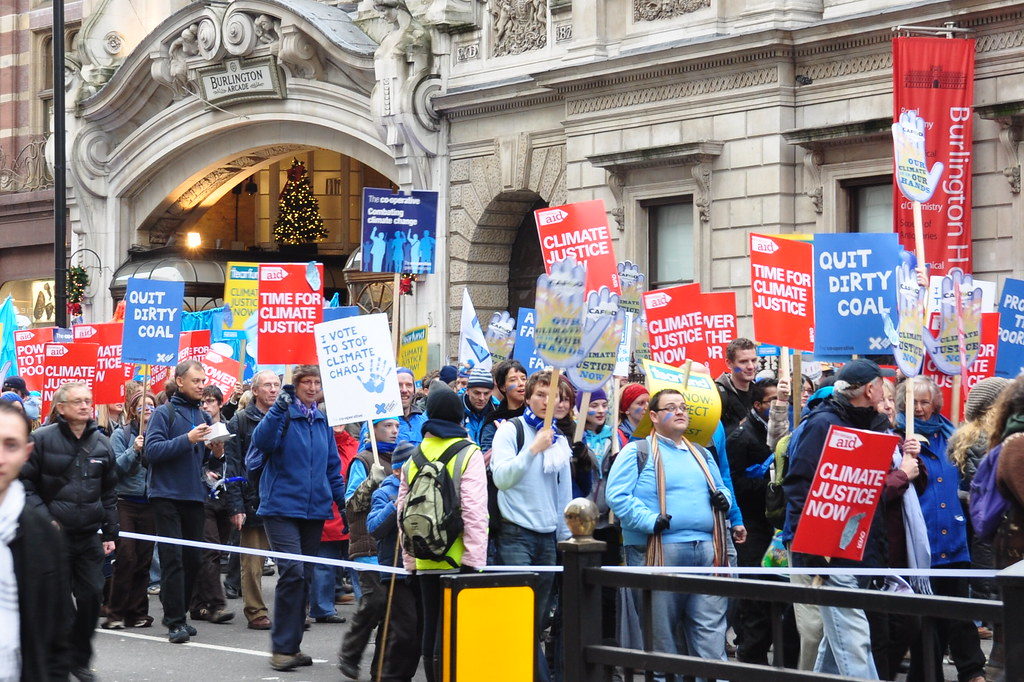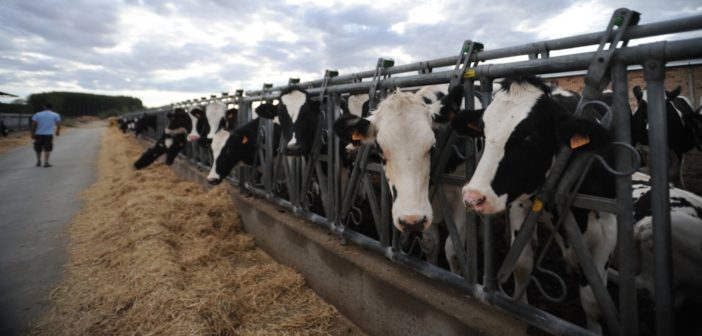Through the media, we have recently had the pleasure to get to know Greta Thunberg, the Swedish girl who in August 2018 began standing alone every Friday in front of the Swedish parliament holding a written sign that read “school strike for climate.”

Greta Thunberg stood in front of the Swedish Parliament with this sign and sparked a movement of young people calling for change. Image credit Anders Hellberg, CC BY-SA 4.0.
In December, Greta spoke at the United Nations (UN) Climate Conference, blaming world leaders for behaving like “irresponsible children, not mature enough to say things the way they are,” and from that point she invited all young people to mobilize for this cause.
She also spoke in Brussels in front of the European Economic and Social Committee, to say that “there is not enough time to allow us to grow and take control of the situation.”
On March 15 2019, students in 128 countries and more than 2,200 cities around the world walked out of school along with Thunberg to strike for climate action. More than 1.4 million young people around the world took part in what turned out to be the biggest day of global climate action ever.
In Greta’s opinion, the fact that our leaders are keeping a lid on the appalling climate situation we are already in is one of the main reasons why people do not panic and react. There is no malice in most of us who go on as if we are not in a major environmental crisis. But maybe, there is something that is just as bad when it comes to its effect on halting change: selective disinterest. People concern themselves with recycling or not driving as often, but cannot pass on a succulent piece of meat.
The single biggest thing a person can do right now to reduce their impact on climate change is stop consuming animal products and transition to a vegan diet.
Indeed, the overall impact of intensive livestock breeding on the environment is enormous. This sector contributes 14.5% of global greenhouse gas (GHG) emissions. The most concerning of these gases are methane, nitrous oxide, ammonia and carbon dioxide.
For example, 25% of methane gas (CH4) is released into the atmosphere during the digestive processes from goats, cattle and sheep, 30% evaporates from manure, up to 10% comes from fertilizers and over 30% is due to deforestation.
A cow releases on average between 70 and 120 kilograms of methane per year. Methane is a greenhouse gas like carbon dioxide. However, the negative effect on the climate of methane is 23 times larger than the effect of carbon dioxide. Therefore, the release of about 100 kilograms of methane per year for each cow has the effect on climate change of about 2,300 kilograms of carbon dioxide per year.

The meat industry causes immense suffering for animals and contributes heavily to climate change. What other reasons do you need to give up meat? Image credit Wolf Gordon Clifton – Animal People, Inc.
According to a report from the Food and Agriculture Organization (FAO) of the UN, the production of meat is set to double between now and 2050. Intensive livestock production currently occupies 70% of agricultural land and is responsible of 18% carbon dioxide greenhouse gas emissions and 37% of methane. Billion of tons of carbon dioxide and methane are released every year due to the combined effect of livestock themselves and their manure.
A kilogram [2.2 pounds] of beef is responsible for the equivalent of the amount of carbon dioxide emitted by the average European car every 250 kilometers [155 miles], and its production has consumed enough energy to light a 100-watt bulb for nearly 20 days.

A climate change protest in London. Raising our voices for change is one way we can fight to end climate change. We can also change what’s on our plates. Image credit Michael Gwyther-Jones, CC BY-SA 3.0.
A more recent scientific study confirms the data set out above, with the authors concluding that “the livestock sector is often associated with negative environmental impacts such as land degradation, air and water pollution, and biodiversity destruction. Emissions from livestock production contribute more GHG to the atmosphere than the entire global transportation sector.”
We have a moral duty to combat climate change in everyday life, and we can start at the dinner table. Giving up the consumption of animal products is one of the most effective ways to reduce our personal carbon footprint and to generally reduce our personal negative impact on the environment.
Featured image: cattle raised for dairy in Spain. Image credit Jo-Anne McArthur / We Animals.





